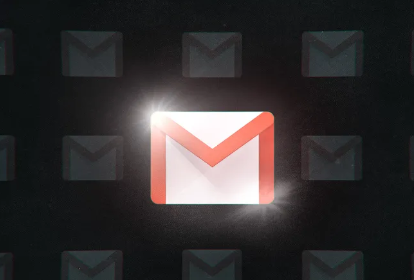Gmail is now officially allowed to spam-proof politicians' emails
Gmail is now officially allowed to spam-proof politicians' emails
On Thursday, the Federal Election Commission approved a new proposal from Google to block campaign emails from being marked as spam.
Google's plan, first reported by Axios in June, would allow candidates, political party committees and leadership political action committees to apply for a program that would free their messages from Gmail's spam detection system. While Google was not required to approve the FEC before rolling out the plan, it sought a vote earlier this summer to ensure the program was not at risk of breaking current election rules. In its Thursday ruling, the FEC confirmed that Google's plan was legal.
During Thursday's open meeting of the FEC, Commissioner Ellen L. "I'm having a hard time understanding the fact that this is a unique advantage given to political committees and only to political committees," Weintraub said. Because of the uniqueness of the program, Weintraub compared it to Google, which provides "one-of-a-kind" contributions to political groups.
Google announced its political filtering plans soon after a recent study found that the company was marking Republican fundraising emails as spam compared to Democratic lawmakers and candidates. The study angered the GOP and prompted significant statements and invitations for Google's chief legal officer, Kent Walker, to explain the company's filtering decisions at a private meeting on Capitol Hill.
"During this pilot program, we seek to assess alternative ways for users to address the concerns of bulk senders while reducing unwanted email," Google spokesman Jose Castaneda said in a statement to The Verge on Thursday. Clear control of your inbox." "We will continue to monitor feedback as the pilot rolls out to make sure it is meeting its goals."
Despite the proposal being offered as a concession, Google took issue with the study's findings, claiming that the researchers examined a small sample size of emails and did not take into account whether the campaign service were part of. Let's use the appropriate bulk email tools already provided.
But Google's explanations didn't change the minds of Republicans, who are struggling to meet their online fundraising goals this cycle. The New York Times reported last month that the total amount donated to GOP entities and federal campaigns fell more than 12 percent in the second quarter compared to the first quarter. This decline is extremely unusual, especially as small-dollar donations traditionally rise as elections.
The decline in fundraising, combined with the controversial filtering study, drove Republicans into a summer frenzy. John Thune (R-SD) and about two dozen other Republicans introduced a bill that would ban email providers like Google from algorithmically sorting federal campaign emails. In a draft memo obtained by The Washington Post earlier this month, the National Republican Senate Committee argued that "Google and its algorithms give Democrat fundraising efforts a distinct advantage, resulting in millions of dollars less than Republicans." " ,
Once Google reached out to the FEC to issue a decision on its legality, the commission opened the program for public comment. Of the hundreds of comments filed with the commission, almost all were negative. The Democratic National Committee (DNC) argued that Google's proposal would be a boon to Republicans and open Gmail to "outrageous fundraising tactics."
Daniel Wessel, the DNC's deputy communications director, told The Verge in June, "It's sad that, instead of simply stopping the sending of spam emails, Republicans are engaging in a bad-faith pressure campaign — and it's even more unfortunate that Google's decision to send spam emails is a big deal." ' didn't stop sending spam emails." Bought it."
Former President Donald Trump's campaign has come under fire for using spammy tactics in its fundraising emails, often using deceptive subject lines or duplicating conversations that voters can have with friends and family on the Internet. . Huh. On Tuesday, Republican nominee for US Senate Dr. Mehmet Oz criticized Trump in Pennsylvania for sending a campaign fundraising email to supporters with the subject "FBI Red - Breaking Information", hours after the FBI targeted Trump Simple. Searched A-Lago House. in the first week.
With the FEC's decision on Thursday, Google will soon allow campaigns like Oz's to apply for the program and ensure that their emails, despite using spam-like methods and language, aren't filtered from users' inboxes. Huh.







No comments